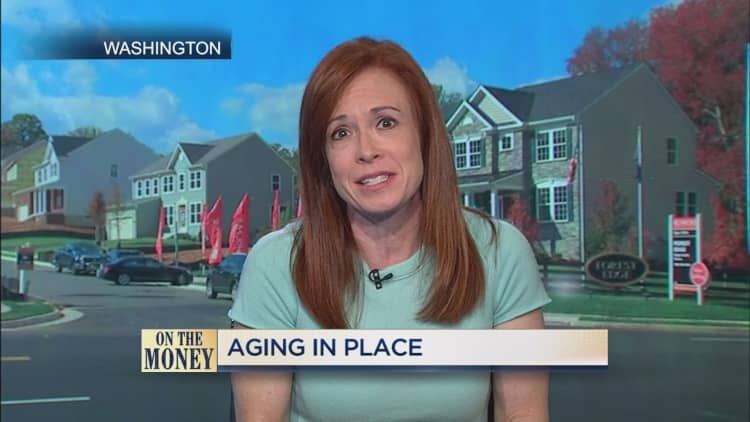April is National Financial Literacy Month, but this week is National Retirement Planning Week, which means it's time for yet another round of depressing statistics about how unprepared we all are for retirement.
Let's focus on baby boomers — those born between 1946 and 1964, ages 55 to 73. Nearly half (47%) are already in retirement.

That's 34 million retired baby boomers.
Our dose of depressing data comes courtesy of the Insured Retirement Institute, which represents the annuity industry. The group's annual report, Boomer Expectations for Retirement, highlights all the problems: too little savings, underestimating health costs and unrealistic expectations of how much retirement income they will need.
Too little savings
The three "legs" of the retirement "stool" are Social Security, private pensions and personal savings. None is in great shape. The average Social Security check is $14,000 a year, hardly a cushy retirement. Only 23 percent of boomers ages 56-61 expect to receive income from a private company pension plan, and only 38 percent of older boomers expect a pension. As for personal savings, I'll make it simple: Most boomers have not saved nearly enough. In the worst case, it is really bad: 45% of boomers have zero savings for retirement.
Underestimating health care costs
Retirees routinely underestimate health expenses, particularly long-term care costs. Many simply don't understand the system: Shockingly, 50% of those in the survey say they have not factored in the cost of long-term care insurance because they say they will rely on Medicare. But Medicare provides no coverage for long-term care. Only 8% of boomers say they have purchased a long-term care policy.
We are all going to live a lot longer than we think. In about half of all married couples over 65, one partner will survive to at least 95.
More from Invest In You:
Do this now to feel financially secure in future
This simple banking move can multiply your money
Figuring out your net worth isn't just for the 1 percenters
Underestimating retirement income
We are underestimating how much we are going to spend. The average amount spent by Americans 65-74 is $55,000 a year, but most baby boomers don't think they will need anywhere near that amount. Indeed, 60% say they will need less than that to live on.
A lot of people are kidding themselves:
Expected annual retirement income need
- Less than $35,000 — 44%
- $35,000-$55,000 — 26%
- $55,000-$75,000 — 16%
- More than $75,000 — 14%
Source: Insured Retirement Institute
What's the backup plan? What happens when a lot of people realize they haven't thought this whole retirement thing through very well? Here's the plan: Downsize, go back to work, or hit up the kids.
What will you do if you run out of money?
- Downsize, live on Social Security alone — 58%
- Return to work — 37%
- Ask children for assistance — 6%
Source: Insured Retirement Institute
The part about returning to work, or staying at work, is already happening. One-third of employed boomers ages 67 to 72 have postponed retirement, the study says.
Do they have any regrets? Plenty. Among those not confident they did a good job preparing for retirement, the top two things they wish they had done differently were to have saved more (63%) and to have started saving earlier (58%).
Let's hope Gen X, millennials and Gen Z will do a better job planning for retirement than baby boomers have done.
WATCH: Aging in place

DISCLOSURE: NBCUniversal and Comcast Ventures are investors in Acorns.






